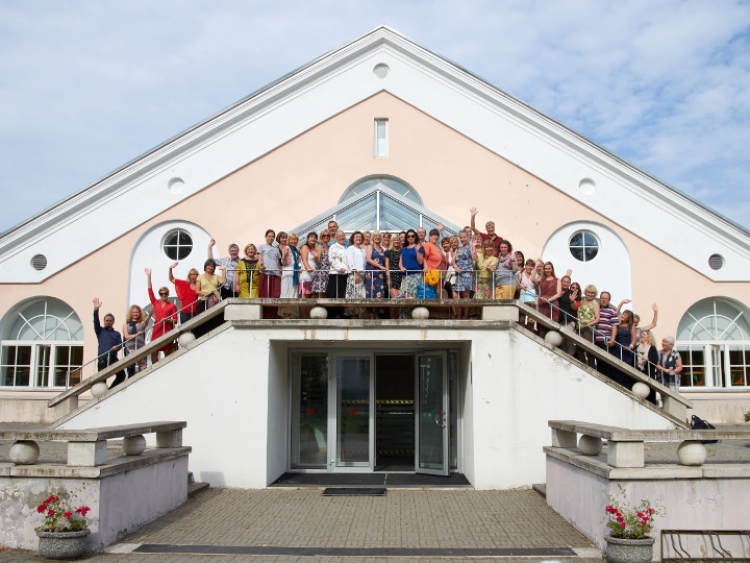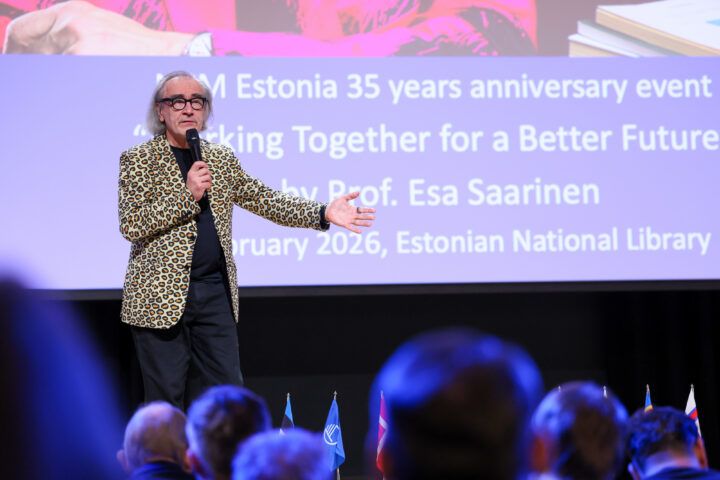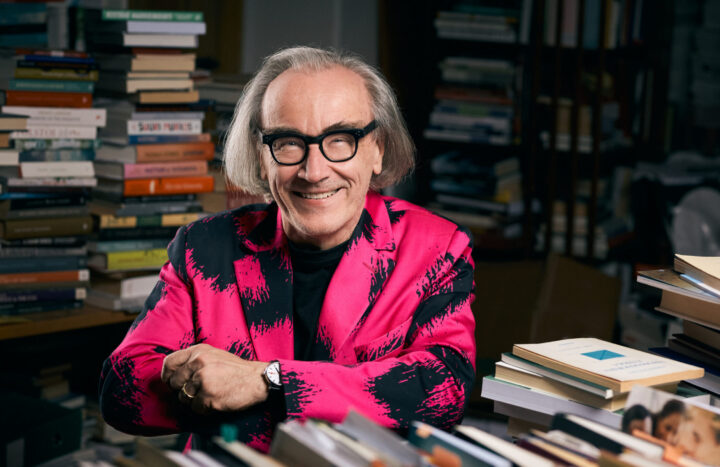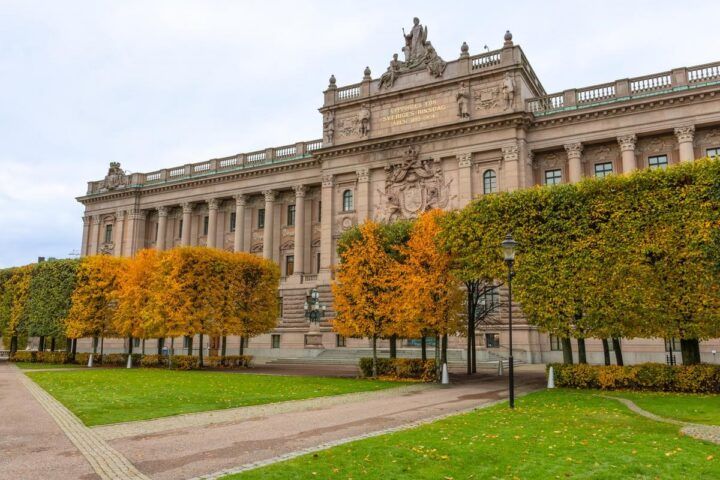‘Biophilia’ unites creativity and natural sciences at all levels of education

‘Biophilia’, the initiative launched by world-famous Icelandic musician Björk, has grown into a pan-Nordic education project which dynamically links the field of education with cultural institutions and institutes of research and development. Satu Roberg and Jarkko Mylläri from Finland recently introduced the initiative to around a hundred teachers and other education workers at the fourth creativity forum held in Illuka in Ida-Viru County.
‘Biophilia’ breaks down traditional teaching methods and brings together students of all ages – from the very earliest years of school through to those at the academic level. More specifically, it consists of 10 apps developed by Björk in which, for example, you can study the formation of DNA and protein through music, or generate earthquakes.
The ‘Biophilia’ teaching materials are publicly available on the project website and can be used by anyone who wishes to do so. Iceland launched the project last autumn as the then presiding country of the Nordic Council of Ministers. Roberg says that so far 40 teachers have been trained in Finland who will begin teaching 1200 students in eight schools according to the ‘Biophilia’ principles starting from this autumn.
The project hopes to achieve a number of results through cooperation across the Nordic countries:
- more innovative schools that unite the natural sciences, creativity and technology in their teaching work;
- the breaking down of traditional teaching methods and their replacement with instruction that is not restricted by age, subject or discipline;
- a dynamic cooperation network between the Nordic countries which shares its ideas and experiences and develops the project further in accordance with Nordic values; and
- young people who are more interested in creativity, the natural sciences and technology, thereby gradually boosting the competitiveness of the region globally.
Roberg and Mylläri said that the aims and principles of ‘Biophilia’ are well-matched to the current overhaul of the Finnish education system and that the joint Nordic education project in turn supports Finnish reform. Assessment of the pilot project of ‘Biophilia’ will take place next spring, at the end of the academic year.
Changing school culture in Finland and Estonia
The changes being made to the Finnish education system and the objectives of these changes were showcased at the creativity forum by Gun Oker-Blom. A councellor with the National Board of Education in Finland, Oker-Blom says that teachers, students and the education system as a whole need to adapt to the situation in a changing world.
Due to society’s expectations and the availability and sheer amount of information, Finnish schools are becoming learning communities that transcend specific fields and in which teachers not only instruct students, but also steer them towards the right path and help them make sense of things. The teaching methods are creative, with a great deal of attention turned to discussion and drama.
The aim of the new curriculum, which will come into effect in 2016, is to foster a school culture in Finland that offers security, teaches students to discuss things and work with one another, respects cultural diversity and equality, encourages students to contribute to social processes and supports environmentally friendly and sustainable ways of life.
Oker-Blom says that creative teaching methods should fully engage the student – all of their senses and their full mental capacity. Here the focus is on crossover skills like digital competence and communication. The whole world becomes the student’s textbook and classroom.
Pille Liblik from the Estonian Ministry of Education and Research confirmed that the Estonian education system was moving in the same direction and with values analogous to those of its northern neighbours. School culture is being reassessed in a similar vein and is likewise shifting towards learning communities, where the teacher selects methods and the state provides recommendations on how to plan teaching processes.
The new curricula in Estonia and Finland will eventually become digital resources.
Visual teaching and learning
The third main theme of the 2015 creativity forum was visual teaching and learning, the foundations for which were laid by New Zealand researcher John Hattie. The method was introduced at the forum by Denmark’s Martin Tinning and Sweden’s Bitte Sundin. The underlying idea of visual teaching and learning is not the assessment of results, but of the individual progress of every student. The students themselves are required to evaluate their own efforts as well as present questions and work together. Here it is important for teachers to get feedback from students regarding the effectiveness of their teaching.
Migrant children in Estonian schools
The organisers of the creativity forum – the Nordic Council of Ministers’ Office in Estonia and the NGO LoovHA – worked with a number of partners on selecting the theme for this year’s event, which was ‘Creativity Creates Security’. Playing a decisive role in the choice of this theme was the current tension in areas close to the Nordic countries and Baltic States and in Europe more broadly: Russian aggression in Ukraine, the influx of migrants, the economic crisis in Greece and more.
Studies of creativity (Rotenberg, 1990; Carlsson, 2002; Runco, 2007) confirm that a strong degree of tension and fear can stifle people’s creative thinking and creative activity as a whole. The primary requirement in order for students to be able to think creatively and to discover the creativity within them is a safe [classroom] environment.
There have been a number of fiery debates in Estonia about migrants, and more specifically the acceptance of refugees. In the coming years, more and more children will be entering Estonia’s linguistic and cultural space, which forms part of an open Europe, and attaining their education here.
Lilleküla Upper Secondary School in Tallinn has years of experience with foreign students and in providing them with assistance. Edward Kess, the Estonian language teacher at the school, outlined how Estonian is taught to migrant students and how (and how quickly) they adapt to their new situation. Kess says people should not forget that children from other linguistic and cultural backgrounds are children all the same.
Fourth creativity forum
Everybody needs creativity in order to cope in a rapidly changing living, learning and working environment. Creativity assists in the acquisition of new knowledge and the use of existing knowledge more effectively; it enables people to look at – and solve – problems from a different angle. Creative and unusual ideas and personalities are what inspire new solutions and give birth to new products and services. These, in turn, contribute to sustainable and more even development in the Baltic Sea region, something very much in the interests of the Nordic countries and Baltic States.
The Nordic Council of Ministers’ Office in Estonia, as the founder of the creativity forums, has sought to organise the event in an environment which draws teachers, school directors and other education workers out of their comfort zone ahead of the academic year. In its first year the forum was held on the island of Naissaar; in its second year in Käsmu; in its third year in Narva; and this year in Illuka. The forums have included presentations of a theoretical nature as well as creative studios and workshops at which the attendees have been able to put what they have heard to the test straight away.
Photos from the ‘Creativity Creates Security’ forum held in Illuka on 24 & 25 August can be viewed in our picture gallery, while the presentations can be found here.


